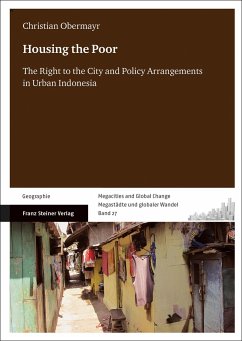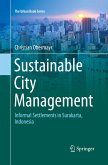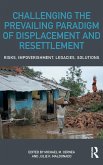More than one billion people live in slums, and it remains a distant dream to achieve adequate housing for all, as articulated in the Sustainable Development Goals (SDG 11). Sound housing policies for the poor do exist but require an appropriate governance framework and a normative orientation. This book analyses in detail half a century of international discussions on housing, slums, and informal settlements, identifies policy phases (self-help, enabling) and discusses pros and cons of applied measures globally and in the context of Indonesia. It contributes to a better understanding of interlinkages between urban governance and housing policies by employing the analytical framework of policy arrangements, and by developing a normative compass based on Henri Lefebvre's right to the city. Empirically, it examines and compares housing strategies (social housing, resettlements, slum upgrading) and modes of governance in two case studies, the Indonesian cities Surabaya and Surakarta. The findings show that specific policy arrangements oriented towards a normative goal are crucial for the emergence of sound housing policies and a societal transformation that benefits marginalised groups.
"Umfassend kontextualisiert [Obermayr] den Forschungsgegenstand aus globaler und lokaler Perspektive, diskutiert theoretische wie normative Grundlagen (v.a. Henri Lefebvres 'Recht auf Stadt' und seine Überlegungen zur Produktion urbaner Räume) und setzt sich mit unterschiedlichen Maßnahmen, Strategien und Interventionen im Bereich der Wohnungspolitik auseinander." https://www.centrum3.at/medientipps/housing-the-poor Centrum für Internationale Entwicklung 20231001








